Athenagoras and Chiara Lubich
http://vimeo.com/95726085
http://vimeo.com/95726085
What can you do? Donate blood. Donate often. This is the slogan chosen by the World Health Organisation for the celebration of the World Blood Donor Day on 14 June. Some of the objectives of the campaign: to encourage all citizens to reinforce the efficiency of healthcare services; involve the authorities in the creation of National programmes to respond to the growing needs; favour the inclusion of transfusion services in emergency situations; guarantee the supply and reach self-sufficiency nationwide; thank the people who donate blood regularly; promote international cooperation; ensure voluntary donation and enhance security and availability of blood.

 Belgrade (“the white city”) in Central Serbia, one of Europe’s oldest cities,lies at the confluence of the Sava and Danube Rivers. “Gateway to the Balkans” or “Gateway to Europe,” reborn after a recent past of wars, it is today an avant-garde capital, where new ideas, novelties and vitality brew in the fields of art, economy, architecture. and also sports. Last 12-13 May, on the occasion of the 20th anniversary of its foundation, the College of Sports and Health, a certified institution with 600 students, organised an international conference entitled “Sports, recreation, health.” Sportmeet was among the guests invited by Prof. Alexander Ivanovski, also as the expression in the world of sports of that social and spiritual renewal that originated from the experience of the Focolare: a global network of sports lovers, professional and amateur sportsmen and women, teachers, instructors, journalists, managers and operators of the sports business, who live sports as a positive reality for the discussion and exchange of ideas, and as an occasion not only to work up one’s body, but also for universal brotherhood and inclusion. Paolo Cipolli, Sportmeet President, at the conference with a Serb-Croatian delegation entitled his speech Sports moves people and moves ideas. The “sports phenomenon” is one of the more complex, interesting and compelling realities of our time, involving 800 million practitioners, five million sports associations, 205 national federations, and members of the International Olympics Committee, 208 of which belong to the International Soccer Association.
Belgrade (“the white city”) in Central Serbia, one of Europe’s oldest cities,lies at the confluence of the Sava and Danube Rivers. “Gateway to the Balkans” or “Gateway to Europe,” reborn after a recent past of wars, it is today an avant-garde capital, where new ideas, novelties and vitality brew in the fields of art, economy, architecture. and also sports. Last 12-13 May, on the occasion of the 20th anniversary of its foundation, the College of Sports and Health, a certified institution with 600 students, organised an international conference entitled “Sports, recreation, health.” Sportmeet was among the guests invited by Prof. Alexander Ivanovski, also as the expression in the world of sports of that social and spiritual renewal that originated from the experience of the Focolare: a global network of sports lovers, professional and amateur sportsmen and women, teachers, instructors, journalists, managers and operators of the sports business, who live sports as a positive reality for the discussion and exchange of ideas, and as an occasion not only to work up one’s body, but also for universal brotherhood and inclusion. Paolo Cipolli, Sportmeet President, at the conference with a Serb-Croatian delegation entitled his speech Sports moves people and moves ideas. The “sports phenomenon” is one of the more complex, interesting and compelling realities of our time, involving 800 million practitioners, five million sports associations, 205 national federations, and members of the International Olympics Committee, 208 of which belong to the International Soccer Association.  Considering that “only” 192 nations are part of the UN, its weight and omnipresence, like a sort of planetary power, or as some say a “new religion” is obvious. It is an area of infinite economic interest, but sad to say, also of delinquency, while on the contrary, sports can become a “training ground” for brotherhood, unity and integration – a universal “language of gestures” that brings down barriers, obstacles and diversities. In Belgrade, the clean aspect of sports was staged. Among the many speeches on the various aspects connected to the role and potential of sports in the promotion of health, a common consideration emerged among experts and teachers from Slovenia, Croatia, Macedonia and Bulgaria: the need to define new policies for a full valorisation of sports in view of a correct lifestyle, and all the possible forms of integration, especially among the youth. The conference was the occasion to establish new relationships and an agreed protocol in view of future cooperation, giving value to important experiences already underwaysuch as the use of games in some cases of youth hospitality. After Belgrade, Sportmeet is now focused on the next steps, social inclusion, sports education, integration of the people with diverse abilities and relationship between generationsto be undertaken from 13 – 16 July in Spain. In these four days of sports testimonies, and starting from the international symposium of Barcelona (at the Palau Roberton 13 July),operators will discuss with one another, regarding theholding of a Summer School in Castel d’Aro, some hundred kilometers from the Catalunyan capital. Promoted in cooperation with other local partners, among which is the UniversitatAutònoma de Barcelona, it will be a rich programme to make people aware of inclusive sports and good sportive practice – with the dream that “sports” may really become synonymous to “encounter” at all levels.
Considering that “only” 192 nations are part of the UN, its weight and omnipresence, like a sort of planetary power, or as some say a “new religion” is obvious. It is an area of infinite economic interest, but sad to say, also of delinquency, while on the contrary, sports can become a “training ground” for brotherhood, unity and integration – a universal “language of gestures” that brings down barriers, obstacles and diversities. In Belgrade, the clean aspect of sports was staged. Among the many speeches on the various aspects connected to the role and potential of sports in the promotion of health, a common consideration emerged among experts and teachers from Slovenia, Croatia, Macedonia and Bulgaria: the need to define new policies for a full valorisation of sports in view of a correct lifestyle, and all the possible forms of integration, especially among the youth. The conference was the occasion to establish new relationships and an agreed protocol in view of future cooperation, giving value to important experiences already underwaysuch as the use of games in some cases of youth hospitality. After Belgrade, Sportmeet is now focused on the next steps, social inclusion, sports education, integration of the people with diverse abilities and relationship between generationsto be undertaken from 13 – 16 July in Spain. In these four days of sports testimonies, and starting from the international symposium of Barcelona (at the Palau Roberton 13 July),operators will discuss with one another, regarding theholding of a Summer School in Castel d’Aro, some hundred kilometers from the Catalunyan capital. Promoted in cooperation with other local partners, among which is the UniversitatAutònoma de Barcelona, it will be a rich programme to make people aware of inclusive sports and good sportive practice – with the dream that “sports” may really become synonymous to “encounter” at all levels.
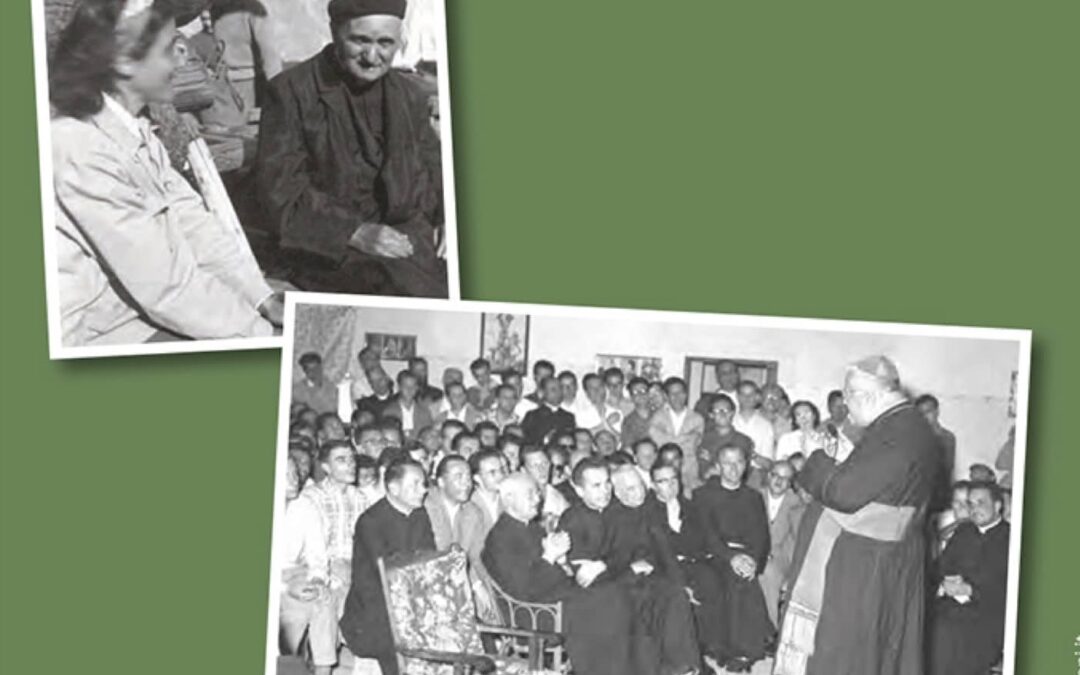
 The then Archbishop of Trento, Msgr. Carlo de Ferrari, had the task of first assessing and approving the Focolare Movement at the diocesan level. The title of the recent book published by Città Nuova Publishing House “Qui c’è il dito di Dio” (Here Is the Hand of God), recalls the expression he used in reference to the evangelical experience that Chiara Lubich and her first companions were living. The context is 1951, a period when not everyone in the Church thought the same as the archbishop of Trent. Indeed, there were many ecclesiastical perplexities and suspicions, in pre-Vatican Council times, with regards to this young lay woman, who had as her followers priests, men and women religious, lay men and women, young people and not so young. Prudence suggested distancing her and perhaps replacing her with a priest. It was through these circumstances that Chiara’s decisive relationship with her bishop began. The book opens with a letter from Chiara Lubich, written from Rome, to Archbishop Carlo de Ferrari. The letter is dated January 5, 1951 and the period of trial that the nascent Movement and Chiara herself were experiencing shines through every line of the text.
The then Archbishop of Trento, Msgr. Carlo de Ferrari, had the task of first assessing and approving the Focolare Movement at the diocesan level. The title of the recent book published by Città Nuova Publishing House “Qui c’è il dito di Dio” (Here Is the Hand of God), recalls the expression he used in reference to the evangelical experience that Chiara Lubich and her first companions were living. The context is 1951, a period when not everyone in the Church thought the same as the archbishop of Trent. Indeed, there were many ecclesiastical perplexities and suspicions, in pre-Vatican Council times, with regards to this young lay woman, who had as her followers priests, men and women religious, lay men and women, young people and not so young. Prudence suggested distancing her and perhaps replacing her with a priest. It was through these circumstances that Chiara’s decisive relationship with her bishop began. The book opens with a letter from Chiara Lubich, written from Rome, to Archbishop Carlo de Ferrari. The letter is dated January 5, 1951 and the period of trial that the nascent Movement and Chiara herself were experiencing shines through every line of the text. 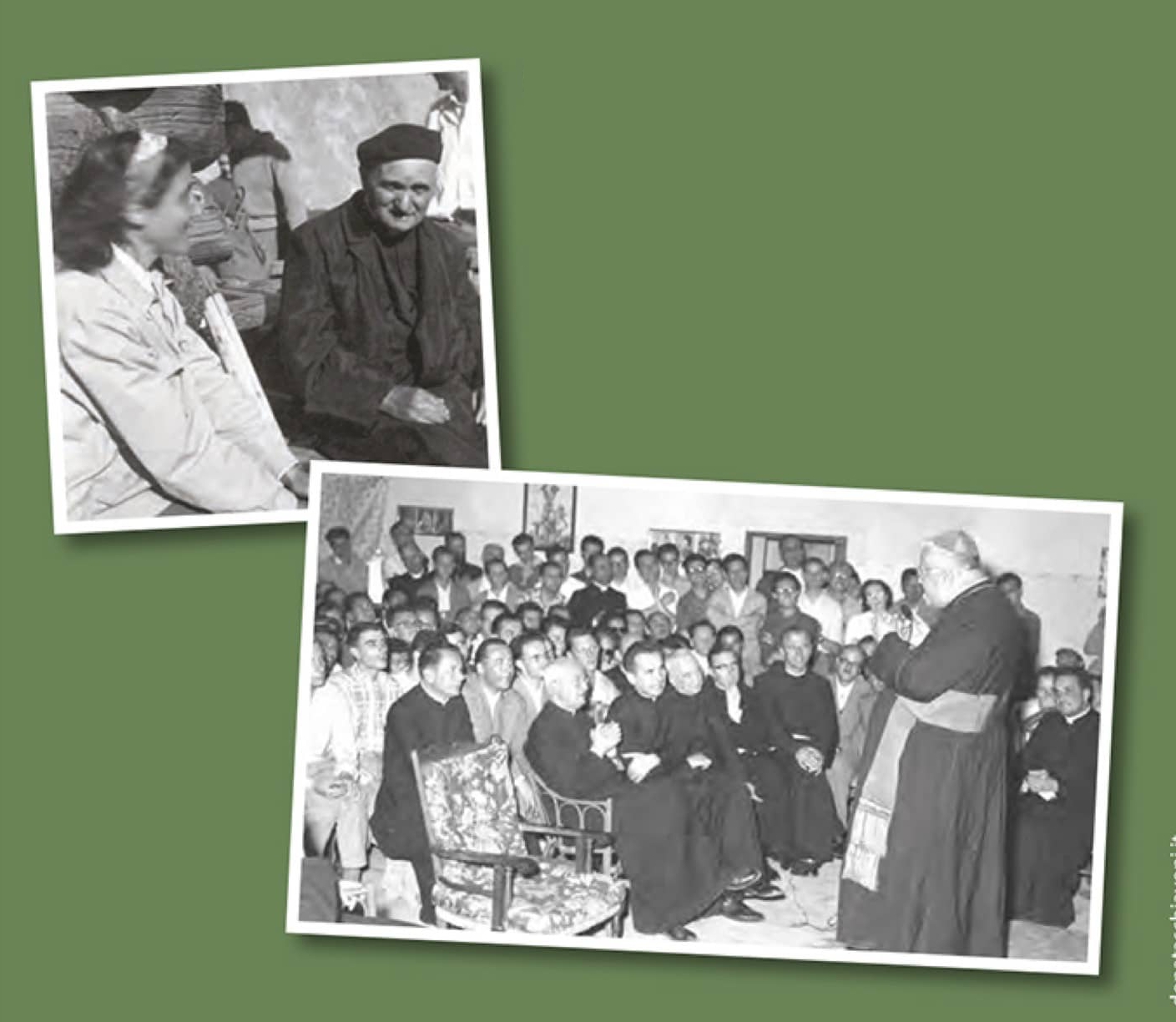 Most Reverend Highness, [1] It’s so true. The cross was heavy and still is, and in these days I understood why Jesus “fell” under the weight of the cross. But, Your Highness, I’m happy, truly happy. I’ve obtained the grace from Jesus to be ready for every decision made by the Church. Not only that, but to leave “my own” (I can still call them that for a while longer), fifty men and women focolarini in such perfect unity that they will be able to pursue their path without anyone even noticing that anything has changed. I’m happy, Highness, to be able to give God all that He has done through me in the supernatural field. I assure You that no matter what happens You can always be assured of my faithfulness to my Jesus forsaken and obedience to the Church. I’ve come this far precisely because I’ve never wanted, on my part, to break unity with the Church, or better, with whoever represented it. If I hadn’t done as I did, perhaps the Movement wouldn’t exist. But the Lord God gave me resistance even against the unimaginable. Now the Movement exists and it will never die. That it is the work of God will be shown perhaps by the fact that I will have to distance myself from it. If I must testify to Him by becoming nothing, after having borne witness to Him through Unity, I’m happy. The culmination of of the life of Jesus was spent in loving was death: and no one has greater love than to give their life for their friends. You, Father, were truly a Father to me, and you showed me (what I believed only through faith) that the Church is a Mother. I will always keep You as Father whatever the Will of God will be for me. No one can forbid me from obeying You, which means obeying the Church. What matters in becoming holy is to obey: to be one. Little does it matter whether they command us to act or not act in one way or another. Isn’t that true, Father? Father Tomasi is a holy man. He’s suffering very much at the moment and is not eating. He is suffering for me… I would never have thought that he could have such feelings.But don’t worry, Your Highness, because we are supporting him and in his presence I also feel lighthearted. In conclusion, I can only tell you one thing: I’m very happy, immensely happy. And I can assure You that Jesus Forsaken will carry me through. Besides: ‘Blessed are you when they separate you and ‘lying, say all manner of evil against you. Rejoice and be glad because your reward in Heaven is great.’ Bless me now and forever, your daughter, Chiara.” Da “Qui c’è il dito di Dio”, (Rome: Ed. Città Nuova, 2017) [1] In those years, the archbishop of Trent was addressed as “Your Highness”.
Most Reverend Highness, [1] It’s so true. The cross was heavy and still is, and in these days I understood why Jesus “fell” under the weight of the cross. But, Your Highness, I’m happy, truly happy. I’ve obtained the grace from Jesus to be ready for every decision made by the Church. Not only that, but to leave “my own” (I can still call them that for a while longer), fifty men and women focolarini in such perfect unity that they will be able to pursue their path without anyone even noticing that anything has changed. I’m happy, Highness, to be able to give God all that He has done through me in the supernatural field. I assure You that no matter what happens You can always be assured of my faithfulness to my Jesus forsaken and obedience to the Church. I’ve come this far precisely because I’ve never wanted, on my part, to break unity with the Church, or better, with whoever represented it. If I hadn’t done as I did, perhaps the Movement wouldn’t exist. But the Lord God gave me resistance even against the unimaginable. Now the Movement exists and it will never die. That it is the work of God will be shown perhaps by the fact that I will have to distance myself from it. If I must testify to Him by becoming nothing, after having borne witness to Him through Unity, I’m happy. The culmination of of the life of Jesus was spent in loving was death: and no one has greater love than to give their life for their friends. You, Father, were truly a Father to me, and you showed me (what I believed only through faith) that the Church is a Mother. I will always keep You as Father whatever the Will of God will be for me. No one can forbid me from obeying You, which means obeying the Church. What matters in becoming holy is to obey: to be one. Little does it matter whether they command us to act or not act in one way or another. Isn’t that true, Father? Father Tomasi is a holy man. He’s suffering very much at the moment and is not eating. He is suffering for me… I would never have thought that he could have such feelings.But don’t worry, Your Highness, because we are supporting him and in his presence I also feel lighthearted. In conclusion, I can only tell you one thing: I’m very happy, immensely happy. And I can assure You that Jesus Forsaken will carry me through. Besides: ‘Blessed are you when they separate you and ‘lying, say all manner of evil against you. Rejoice and be glad because your reward in Heaven is great.’ Bless me now and forever, your daughter, Chiara.” Da “Qui c’è il dito di Dio”, (Rome: Ed. Città Nuova, 2017) [1] In those years, the archbishop of Trent was addressed as “Your Highness”.
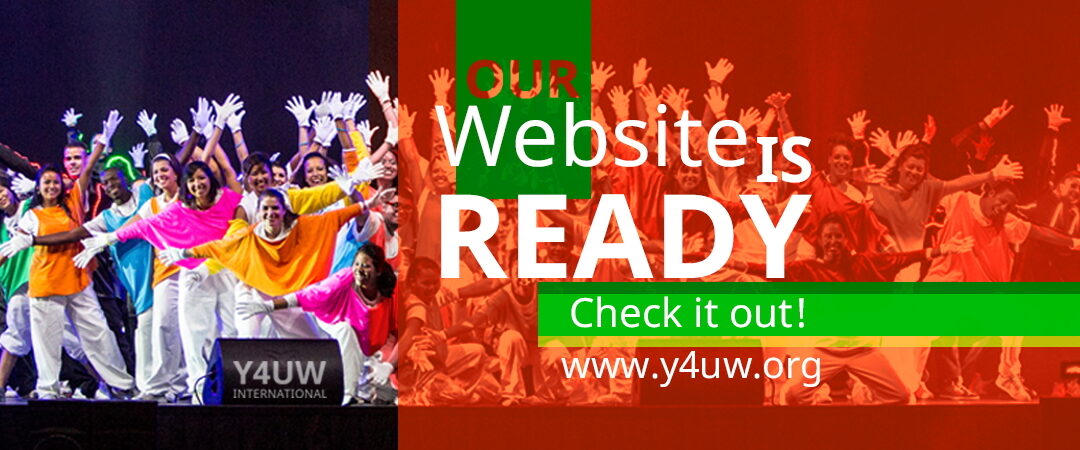
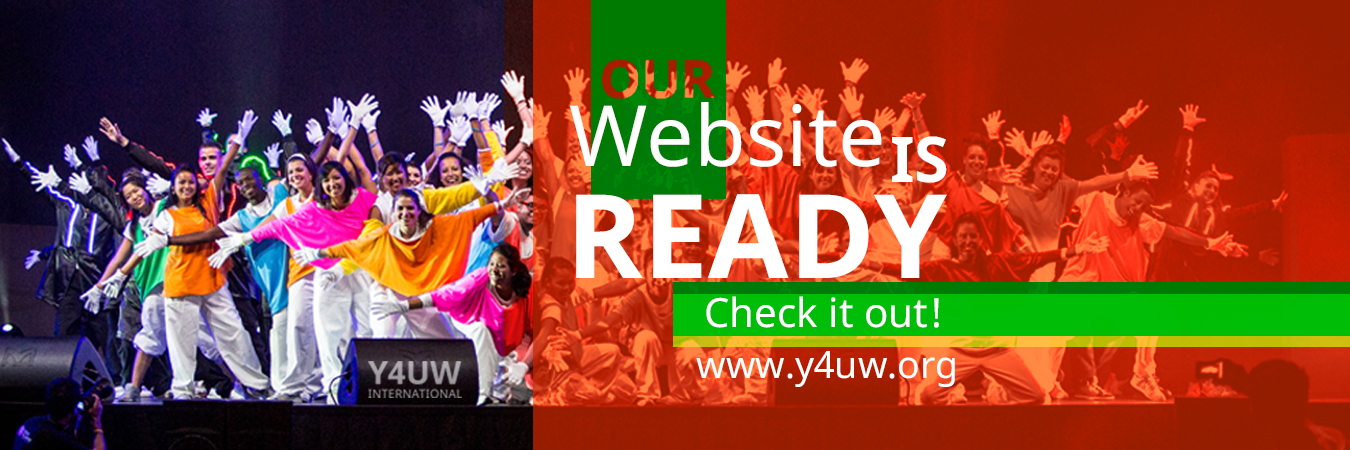 Youth for a United World is an international movement which gathers young people of different races, cultures, religions from 180 countries and across 5 continents. They strive to live for a more united world by putting into practice the Golden Rule: “Do to others what you want them to do unto you; don’t do unto others what you don’t want them to do unto you”. In order to be better connected with young people throughout the world, Youth for a United World have created new communication channels, one of which is the newly launched website yfuw.org which includes content about the movement’s history, news items as well as past and forthcoming events. Genfest 2018: the worldwide event which will take place next year (6-7 July) in Manila, Philippines. More interaction: y4uw.org gives the possible to connect up with young people around the globe.It’s possible to post comments, suggestions, feedback regarding website content but also to convey news about local youth activities. New design: the revamped website makes it easier to view current projects and to contact the protagonists. It’s possible to contact Youth for a United World through the social media: Instagram & Twitter: Y4UW.official Facebook: Y4UW.international
Youth for a United World is an international movement which gathers young people of different races, cultures, religions from 180 countries and across 5 continents. They strive to live for a more united world by putting into practice the Golden Rule: “Do to others what you want them to do unto you; don’t do unto others what you don’t want them to do unto you”. In order to be better connected with young people throughout the world, Youth for a United World have created new communication channels, one of which is the newly launched website yfuw.org which includes content about the movement’s history, news items as well as past and forthcoming events. Genfest 2018: the worldwide event which will take place next year (6-7 July) in Manila, Philippines. More interaction: y4uw.org gives the possible to connect up with young people around the globe.It’s possible to post comments, suggestions, feedback regarding website content but also to convey news about local youth activities. New design: the revamped website makes it easier to view current projects and to contact the protagonists. It’s possible to contact Youth for a United World through the social media: Instagram & Twitter: Y4UW.official Facebook: Y4UW.international
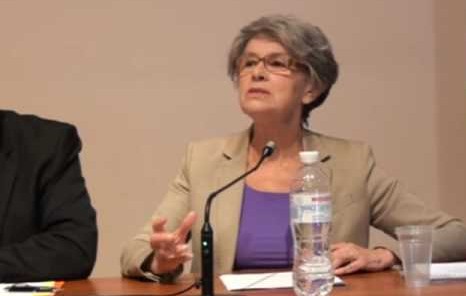

Anne-Marie Pelletier
Maria Rita Cerimele
Source: Città Nuova
“The role of women in the education towards universal brotherhood,” is the theme of the plenary session of the Pontifical Council for interreligious Dialogue, programmed for 7-9 June, in Rome. The event will highlight four Conferences: Sr. Nuria Calduch-Benages, Spanish biblist will speak about “Women educators in universal brotherhood,” Sr. Raffaella Petrini, professor in the Social Doctrine of the Church, will focus on “Women’s qualities against the technocratic paradigm: a Catholic and social perspective on the contribution of women to fraternity;” Marie Derain, French lawyer and infancy civil defence attorney will discuss the theme “Building peace: the role of women ;” and then Clare Amos, of the Ecumenical Council of Churches will expound on “the role of women in education in universal brotherhood.” The participants will be received by the Pope.
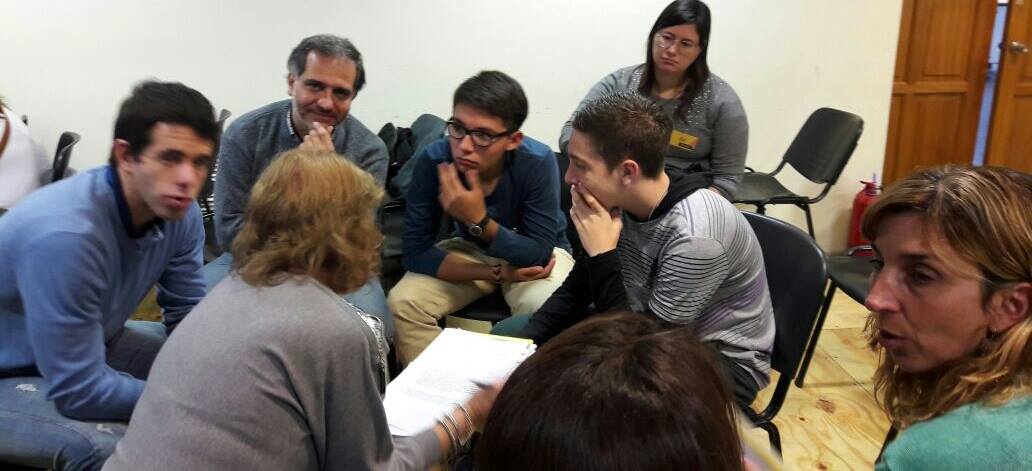
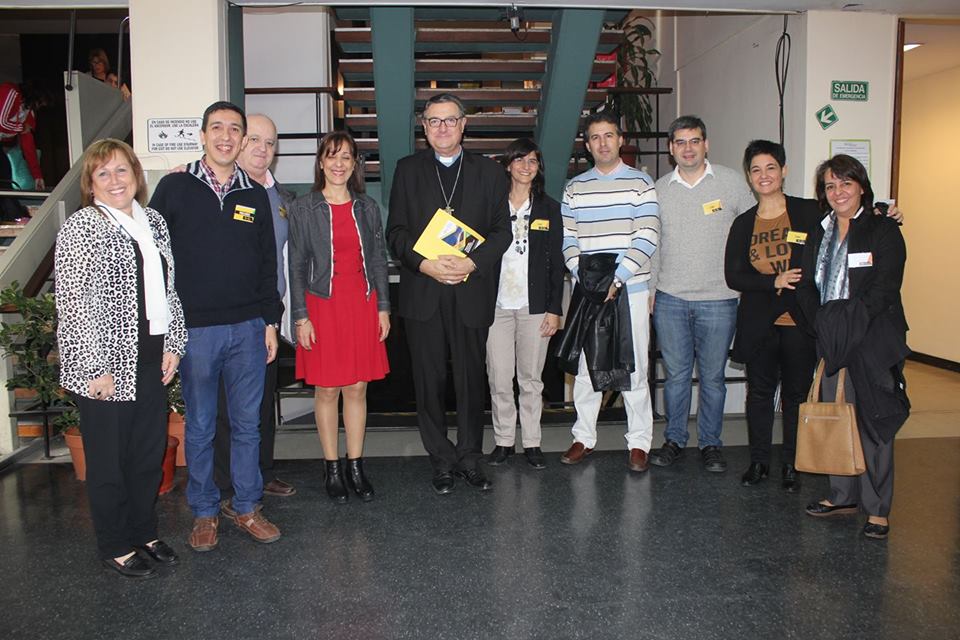 «This is not just a meeting for educators», one of the participants commented with emotion. «I am no longer the same person I was when I got here». «Fraternity, as a lifeoption is the blood that must run in my veins.» There were some impressions of the many participants from countries of the Southern Conethat gathered from 12-14 May in Rosario, Argentina. Besides these, about 500 educators took part directly via streaming during the various moments dedicated to the theme of the Meeting: “The service to learning service,” “Education for a fraternal economy,” “Inter-generational dialogue, and “Empathy and intercultural Workshop” to name a few. The first day started with the visit of the Governor of Santa Fe, Miguel Lifschitz, and authorities of the other local institutions. The Archbishop of Rosario, Bishop Martin, gave a speech the day after and started by affirming that the word,“fraternity,” says that we are not alone.«In this country God brought us together and the challenge we had before is called coexistence…You are not only diffusing theories but you start off from life, and concrete facts.» What came to light was not only the life of fraternity between the students and with their teachers but also between directors and inspectors, proposing innovations for the benefit of the entire educational community. The schools with artistic orientations and which had adhered to the objective of brotherhood gave their testimonials on how interculturality is lived through art, demonstrating new ways of interpreting life as artists. The workshop on inclusion helped to clarify the concept of how “the other, with all his differences is a gift.”
«This is not just a meeting for educators», one of the participants commented with emotion. «I am no longer the same person I was when I got here». «Fraternity, as a lifeoption is the blood that must run in my veins.» There were some impressions of the many participants from countries of the Southern Conethat gathered from 12-14 May in Rosario, Argentina. Besides these, about 500 educators took part directly via streaming during the various moments dedicated to the theme of the Meeting: “The service to learning service,” “Education for a fraternal economy,” “Inter-generational dialogue, and “Empathy and intercultural Workshop” to name a few. The first day started with the visit of the Governor of Santa Fe, Miguel Lifschitz, and authorities of the other local institutions. The Archbishop of Rosario, Bishop Martin, gave a speech the day after and started by affirming that the word,“fraternity,” says that we are not alone.«In this country God brought us together and the challenge we had before is called coexistence…You are not only diffusing theories but you start off from life, and concrete facts.» What came to light was not only the life of fraternity between the students and with their teachers but also between directors and inspectors, proposing innovations for the benefit of the entire educational community. The schools with artistic orientations and which had adhered to the objective of brotherhood gave their testimonials on how interculturality is lived through art, demonstrating new ways of interpreting life as artists. The workshop on inclusion helped to clarify the concept of how “the other, with all his differences is a gift.” 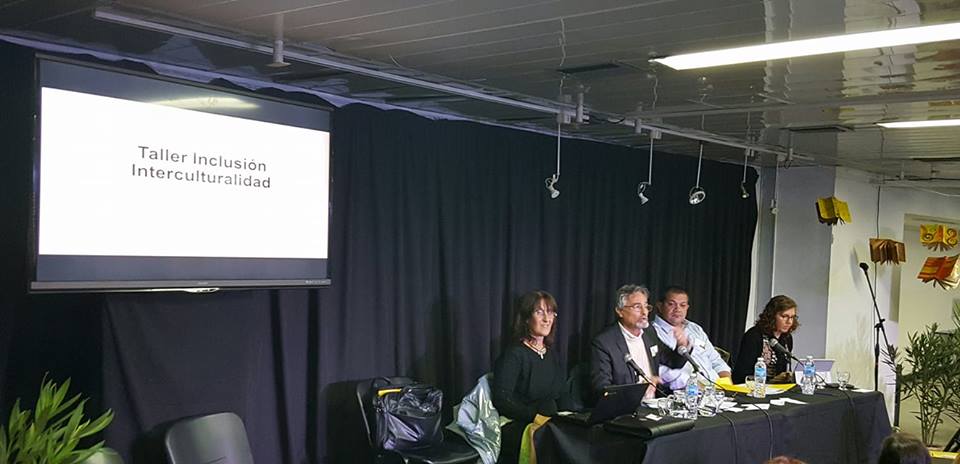 The theme on education and training outside the school environment, which is a life-learning process focusing on brotherhood as its methodology, indicated a pathway which consists in going out towards the peripheries with a programme centered on values. The experiences on the relationship between education and technology were presented as the great opportunity to achieve fraternity, setting the relationship between students and that with the teachers on the same level, and as the possibility to bring out the best in the others, and learn from everyone. Also many educational practices that had produced excellent results were presented, and concerned the potential of body language and the golden rule in the field of sports as a way of building bridges in such important fields.
The theme on education and training outside the school environment, which is a life-learning process focusing on brotherhood as its methodology, indicated a pathway which consists in going out towards the peripheries with a programme centered on values. The experiences on the relationship between education and technology were presented as the great opportunity to achieve fraternity, setting the relationship between students and that with the teachers on the same level, and as the possibility to bring out the best in the others, and learn from everyone. Also many educational practices that had produced excellent results were presented, and concerned the potential of body language and the golden rule in the field of sports as a way of building bridges in such important fields.  All this can be summarized in Chiara Lubich’s educational proposal to be applied in many educational realities worldwide, inspired by love for the more vulnerable, “ignorant,” abandoned people who are excluded from the system. It is a path that identifies the presence of Jesus Crucified and Abandoned: an abandonment that found its answer of love in the Resurrection, which is thus a key to building fraternity right in the heart of the “divide.” «I leave with my heart full of hope knowing that this paradigm exists, knowing that there are a lot of people working to combat verticality, the lack of mutual listening, the widespread mentality for which knowledge is only in the hands of the teacher, the adult – said Enzo of Chacabuco, specialized in music therapy. – This is a different road. I hope the second edition of this Convention will be organised soon.» Source: SiteSouthern Cone
All this can be summarized in Chiara Lubich’s educational proposal to be applied in many educational realities worldwide, inspired by love for the more vulnerable, “ignorant,” abandoned people who are excluded from the system. It is a path that identifies the presence of Jesus Crucified and Abandoned: an abandonment that found its answer of love in the Resurrection, which is thus a key to building fraternity right in the heart of the “divide.” «I leave with my heart full of hope knowing that this paradigm exists, knowing that there are a lot of people working to combat verticality, the lack of mutual listening, the widespread mentality for which knowledge is only in the hands of the teacher, the adult – said Enzo of Chacabuco, specialized in music therapy. – This is a different road. I hope the second edition of this Convention will be organised soon.» Source: SiteSouthern Cone
On May 31, 2017, the University of Tubingen, Germany, conferred an honorary doctorate to the Ecumenical Patriarch of Constantinople, Bartholomew I. The degree honours his long years of work in promoting understanding between the Orthodox Church and the Protestant Churches; his efforts for the protection of the Creation; for Europe and for dialogue among religions. The University is one of the oldest in Germany, founded in 1477 and stands among the most internationally reputable centres of study for students of Medicine, the Natural Sciences, Human Sciences. It currently serves some 28,500 students.